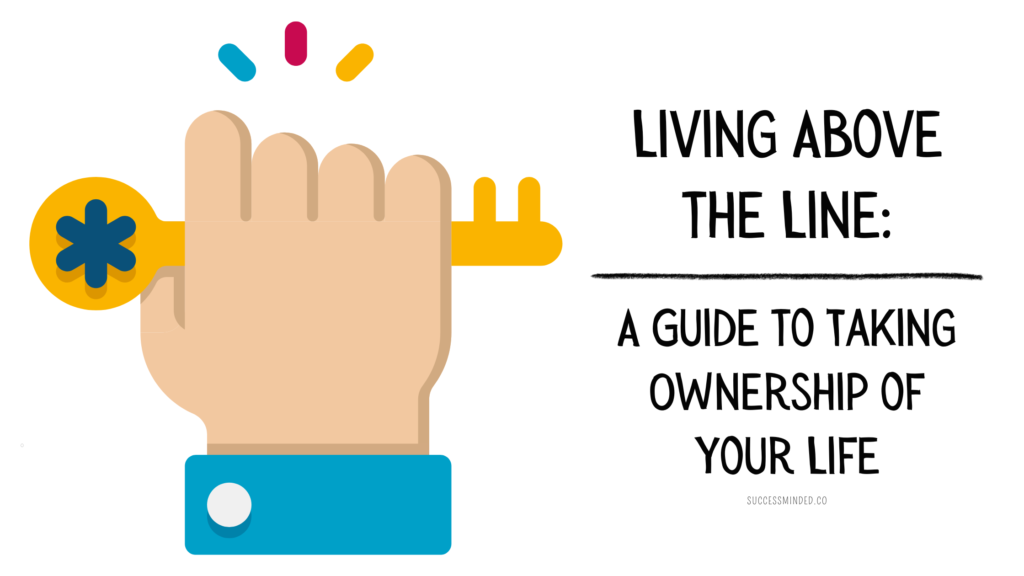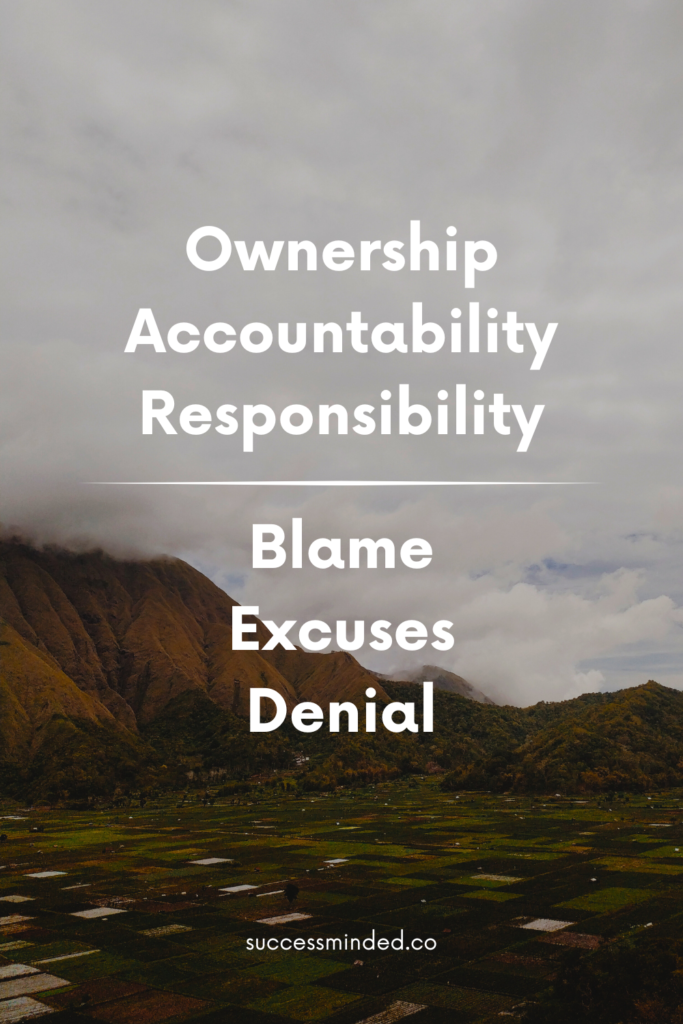In a world where it’s easy to fall into the trap of blaming circumstances or others for our misfortunes, there exists a powerful concept that encourages a different approach: living above the line. This mindset is not just a way to face life’s challenges; it’s a transformative philosophy that reshapes how we perceive our role in everything we encounter. Unlike living below the line, where blame, excuses, and denial are the norms, living above the line invites us to take control, embrace accountability, and accept responsibility for our lives.
This article delves into what it means to live above the line, the importance of this approach, and practical steps to embody this empowering mindset.

What Does Living Above the Line Mean?
Living above the line is about adopting a mindset of ownership, accountability, and responsibility. It’s a commitment to self-awareness and self-governance, where you recognize that your actions, thoughts, and feelings are within your control. This doesn’t mean you won’t face challenges or difficult situations, but it does mean you choose how to respond to them.
- Ownership means acknowledging that you are the primary agent of your life. It’s about seeing yourself as the driver rather than the passenger in your life’s journey. When you live above the line, you own up to your choices, including the outcomes they lead to, whether good or bad.
- Accountability is closely related to ownership but focuses more on the external aspects of our actions. It’s about being answerable for your behaviors and their effects on yourself and others. Accountability involves a willingness to face the consequences of your actions and to make amends when necessary.
- Responsibility involves recognizing your ability to respond proactively to life’s events. It’s about understanding that while you might not control every circumstance, you can always control your response to those circumstances. Responsibility in this context is about seeking solutions rather than dwelling on problems.
Living above the line contrasts sharply with living below the line, where individuals blame others for their misfortunes, make excuses for their lack of progress, and deny their role in their own lives. The shift from below to above the line is transformative, fostering a life filled with growth, learning, and empowerment.
The Importance of Living Above the Line
Embracing the mindset of living above the line is crucial for several reasons, impacting personal development, relationships, and overall success.
Personal Growth: Living above the line fosters an environment of self-improvement and personal development. When you take ownership of your actions and decisions, you place yourself in a position to learn from every experience. This mindset encourages reflection, resilience, and the pursuit of excellence as you’re constantly looking for ways to better yourself and your circumstances.
Relationships: Accountability and responsibility are foundational to healthy and strong relationships. By living above the line, you cultivate trust and respect with others. Acknowledging your role in conflicts and challenges and taking steps to address them enhances your interactions and connections with people, whether in personal or professional settings.
Success: Success, whether defined by career achievements, personal goals, or relationships, is more attainable when you live above the line. This approach encourages proactive behavior, goal setting, and the perseverance to overcome obstacles. By taking responsibility for your outcomes, you’re more likely to achieve your aspirations and handle setbacks constructively.
How to Live Above the Line

Living above the line is a choice that requires conscious effort and practice. Here are some strategies to help you adopt this empowering mindset:
Taking Ownership: Start by acknowledging that you are in control of your life. Recognize that while you cannot control every event, you can control your reactions to them. Take ownership of your mistakes as well as your successes. Reflect on your decisions and consider how they align with your values and goals.
Practicing Accountability: Hold yourself accountable for your actions and their outcomes. This means not only accepting responsibility when things go well but also when they don’t. Communicate openly and honestly with others about your commitments and strive to meet them. When you fall short, don’t shy away from admitting it and working to make things right.
Embracing Responsibility: Seek out opportunities to make positive changes in your life and in the lives of those around you. When faced with challenges, instead of asking, “Why is this happening to me?” ask, “What can I do about this?” Focus on solutions and steps you can take to address the situation rather than dwelling on the problem itself.
Living above the line is not always easy, but it is always worth it. It leads to a more fulfilling, purposeful life marked by growth and resilience.
Overcoming Obstacles to Living Above the Line
While the journey to living above the line is rewarding, it’s not without its challenges. Fear, negative self-talk, and a habit of externalizing blame can all act as barriers to adopting this mindset. Here are some strategies to overcome these obstacles:
- Recognize and Challenge Fear: Fear of failure, criticism, or the unknown can keep you stuck below the line. Recognize when fear influences your decisions or reactions. Challenge these fears by asking yourself what you would do if you weren’t afraid. Taking small steps despite fear can help you build confidence and resilience.
- Transform Negative Self-Talk: Pay attention to your inner dialogue. Negative self-talk can reinforce a victim mentality and hinder your ability to live above the line. When you catch yourself being self-critical, try to reframe those thoughts in a more positive or realistic light. Ask yourself if you would speak to a friend the way you speak to yourself.
- Stop Blaming Externally: When things go wrong, it’s tempting to blame external factors or other people. While this might provide short-term relief from discomfort, it prevents personal growth. Practice identifying your role in different situations, focusing on what you can control and change.
Transforming Challenges into Opportunities
Viewing challenges through the lens of living above the line can dramatically change your approach to life’s obstacles. Instead of seeing challenges as insurmountable barriers, you can view them as opportunities to grow, learn, and improve. This perspective shift is powerful, turning every difficulty into a chance to demonstrate resilience, adaptability, and strength.
- Reframe Challenges: Practice viewing challenges not as roadblocks but as stepping stones. Ask yourself what each challenge can teach you and how it can contribute to your growth.
- Seek Learning in Every Situation: No matter the outcome, there’s always something to learn. Whether you succeed or face setbacks, take time to reflect on the lessons each experience brings.
Living Above the Line in Everyday Life
Incorporating the principles of living above the line into your daily life can create lasting changes in how you interact with the world. Here are some practical tips to help you maintain this mindset:
- Set Clear Intentions: Begin each day with a clear intention or goal. What do you want to achieve, and how do you want to behave, regardless of what happens?
- Practice Gratitude: Cultivating a habit of gratitude can shift your focus from what’s lacking to what’s abundant in your life. This shift in perspective supports living above the line by fostering positivity and contentment.
- Engage in Self-Reflection: Regular self-reflection is crucial for maintaining an above-the-line mindset. Reflect on your day, considering what went well and what could have been handled differently. Use these insights to guide your actions moving forward.
Conclusion
Living above the line is a transformative approach that empowers you to take ownership of your life, embrace accountability, and pursue personal growth. While challenges will inevitably arise, viewing them as opportunities and applying the principles of living above the line can lead to a more fulfilling and purposeful life. Start small, be consistent, and watch how this powerful mindset can change your world.
Further Resources
For those interested in exploring the concept further, consider reading “The Oz Principle” by Roger Connors, Tom Smith, and Craig Hickman or “Leadership and Self-Deception” by The Arbinger Institute. These books provide deeper insights into accountability and self-awareness, offering practical advice for applying these principles in various aspects of life.



